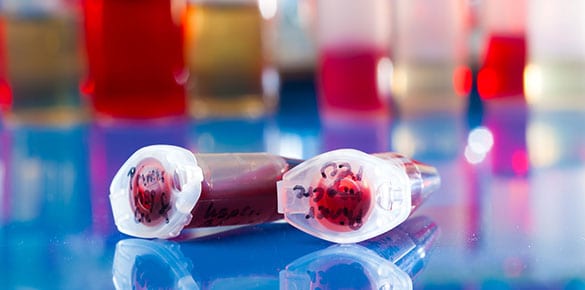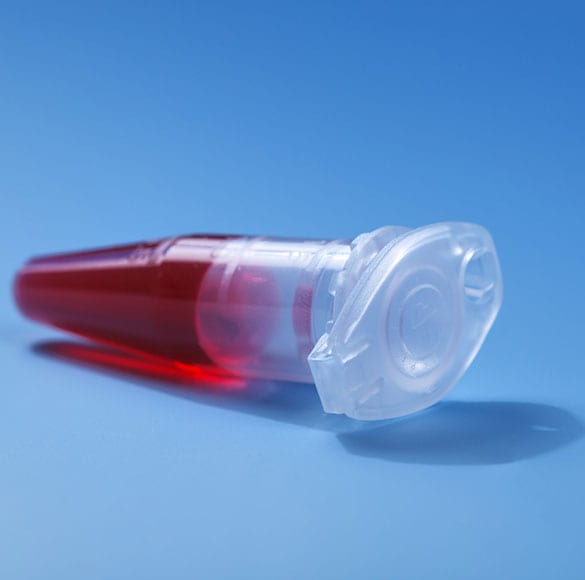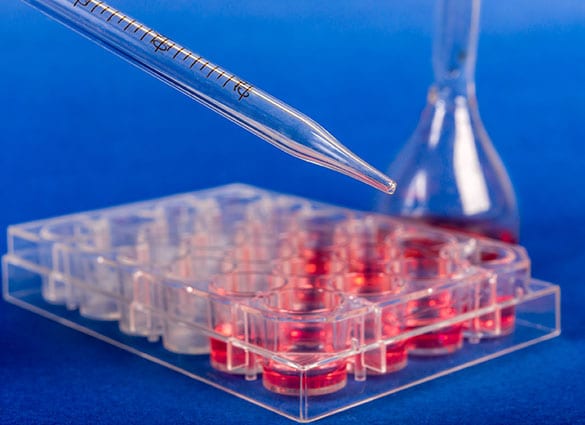
Stem cell therapy is an approach for healing that holds a lot of potential for patients.
Stem cell therapy is a growing area of medicine with rapid advances. As scientists and doctors explore the uses of stem cells, it’s patients who are able to benefit.
- Stem cell therapy is also known as regenerative medicine
- This method promotes healing of diseased or injured tissue
CONTACT US TODAY
Understanding Stem Cells
Stem cells are considered a blank canvas in the medical field. They can transform into any type of cell in the body. When a stem cell confirms into a specialized cell in the body, the process is referred to as differentiation. For patients with arthritis, for example, the stem cells can differentiate into areas of damaged tissue to help contribute to healing.
At our center, we obtain stem cells from the patient’s hip area. The stem cells are separated from the blood using a centrifuge. With this method, there is no risk of negative reaction because the patient’s own cells are being used.


Uses of Stem Cells
In their earliest usage, stem cells contributed to treating patients with leukemia or sickle cell anemia in the form of bone marrow transplants. However, this therapy has grown to include treatments for:
- Spinal cord injuries
- Arthritis
- Chronic pain
- Lupus
- Nerve damage
- Knee and hip pain
- Sports injuries
- Cerebral palsy
Patients are finding that they are able to have more mobility and strength than before with the use of stem cell therapy, because it helps to reduce inflammation that causes chronic pain. Exciting research is even showing that stem cell therapy can benefit bones as well.
While leading research continues to develop, our center provides stem cell therapy for patients suffering from any number of orthopedic conditions. Contact Los Angeles Orthopedic Group today for a consultation to determine if stem cell therapy is a good fit for you.
How it Works
Stem cell therapy is also known as regenerative medicine and is used to treat a wide variety of diseases and conditions to repair and restore damaged tissue and organs. This therapy has the potential to replace organ transplantation by forming new organs rather than using a donor organ. In order to introduce them into the body, they must be harvested. There are several sources of the cells including embryos, adult tissues, genetically reprogrammed adult cells, amniotic fluid and umbilical cord blood. Adult stem cells are not as adaptable as embryonic stem cells and are more likely to have acquired abnormalities. The cells can be implanted into the affected organ or tissue to begin replacing damaged cells with healthy cells of the same type.
What to Expect
When used in orthopedic medicine, stem cells are harvested from the patient’s own bone marrow. The procedure begins with intravenous anesthesia. The physician then removes a small amount of the patient’s bone marrow usually from the hip. The stem cells are then separated from the bone marrow and injected back into the patient at the site of pain or injury. The doctor may suggest rest for 24 to 48 hours after the procedure and supplements may be prescribed to improve the environment for the stem cells to thrive. Any anti-inflammatory medications should be avoided for at least two weeks before and after the procedure. The physician may suggest a schedule for applying ice to the donor site and the area that the cells were reintroduced. Drinking plenty of fluids after the procedure is also advised. The new stem cells can then replace the damaged cells and eliminate the damaged cells from the body.


When to Call the Doctor
It is vital that follow-up appointments are conducted after stem cell therapy. Between appointments, patients should contact their physician if they experience swelling, warmth, redness or drainage from the injection site, skin rashes or irritation, fever, new or unexplained symptoms, bleeding or pain that is not controlled by pain medication.
When to Resume Normal Activity
Ultimately the physician will advise the patient when to return to normal activity depending on the progress of the treatment and status of healing. Most patients undergoing orthopedic stem cell therapy are able to proceed normally after four weeks. It is very important to follow all instructions supplied by the physician and take care to give the affected area adequate time to heal. The patient’s physician will evaluate the results of the procedure and suggest when normal activity may be continued.




